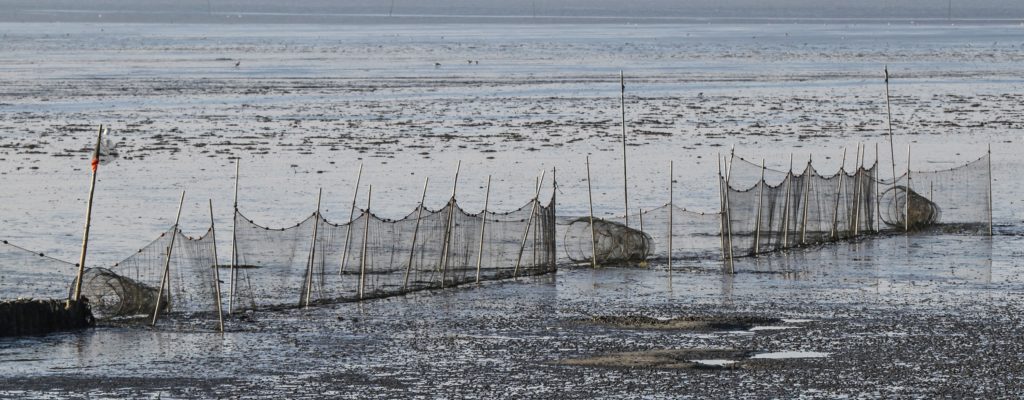O Parlamento Europeu apoia a proposta do Partido para os Animais contra a pesca excessiva no Mar do Norte
O Parlamento Europeu votou a favor, na quinta-feira, 14 de setembro, por um pacote de medidas que visam reduzir a pesca excessiva no Mar do Norte. O Partido para os Animais recebeu apoio para sua proposta de nunca pescar acima do nível do Quantidade Máxima Sustentável. Este limite máximo será aplicado no próximo ano se os 28 países da UE votarem a favor.

Rede de pesca
“A Quantidade Máxima Sustentável ( deve ser mantida como um nível máximo absoluto ao aplicar a cota de pesca nacional, a palavra” máxima” não deixa espaço para diferenças de interpretação”, diz a parlamentar do européia, Anja Hazekamp.
Hazekamp salienta que mesmo que a pesca comece no nível do MSY (Sigla em inglês para Maximum Sustainable Yield – Quantidade Máxima Sustentável), a pressão sobre as populações de peixes ainda permanecerá significativa. “Os planos de pesca não devem apenas ser focados em como a humanidade pode se beneficiar mais dos recursos marinhos. A recuperação e conservação dos ecossistemas marítimos deve ser o principal objetivo desses tipos de planos”.
Por conseguinte, a parlamentar também criticou os partidos no Parlamento Europeu que tentam aumentar o limite máximo da Quantidade Máxima Sustentável.
“As convenções internacionais afirmam que a a pesca excessiva em nossas águas deveria ter sido interrompida em 2015. Isso já foi adiado para 2020. Agora que a pesca efetivamente tem que ser reduzida, você pode ver que os partidos estão a perder a coragem. No entanto, se a pesca excessiva continuar, ninguém será favorecido no longo prazo”, adverte Hazekamp.
Além disso, uma votação foi formulada por iniciativa do Partido para os Animais sobre a proibição de redes de pesca permanentes em frente à costa do Mar do Norte. Mamíferos, como toninhas (ou botos), focas e aves marinhas, muitas vezes acidentalmente, são apanhadas por estas redes, a resultar em morte por sufocação. A proposta de proibir redes permanentes foi rejeitada na votação do plenário. No entanto, as propostas de medidas destinadas a reduzir a pesca recreativa foram positivamente recebidas no Parlamento Europeu.
On Thursday September 14th , the European Parliament voted in favour for a package of protective measures aimed at reducing overfishing in the North Sea. The Party for the Animals received support for her proposal to never fish above the level of the Maximum Sustainable Yield. This maximum limit will be enforced next year if the 28 EU countries vote in favour.

Fishing net
“The Maximum Sustainable Yield should be maintained as an absolute maximum level when enforcing the national fishing quota; the word ‘maximum’ specifically leaves no room for differences in interpretation, ” says Euro parliamentarian Anja Hazekamp.
Hazekamp points out that even if fishing will commence at the level of the MSY, the strain on fish populations will still remain significant. “Fishing plans should not only be focussed on how mankind can benefit most from the sea. Recovery and conservation of maritime ecosystems should be the primary goal of these kind of plans.”
The Euro parliamentarian therefore also criticises parties in the European Parliament that are trying to stretch the ceiling of the Maximum Sustainable Yield.
“International conventions state that overfishing of our waters should have been discontinued by 2015. This has already been postponed to 2020. Now that fishing effectively has to be reduced, you can see that the parties are getting cold feet. However, if overfishing keeps commencing, no one will be favoured in the long term, ” Hazekamp warns.
Besides this, a vote was raised on the initiative of the Party of the Animals about a ban on standing nets in front of the North Sea shore. Mammals such as porpoises, seals and sea birds often accidently get caught up in the nets, resulting in death by suffocation. The proposal to ban standing nets was rejected in the Plenary vote. However, proposals to take measures aimed at reducing recreational fishing were positively received in the European Parliament.